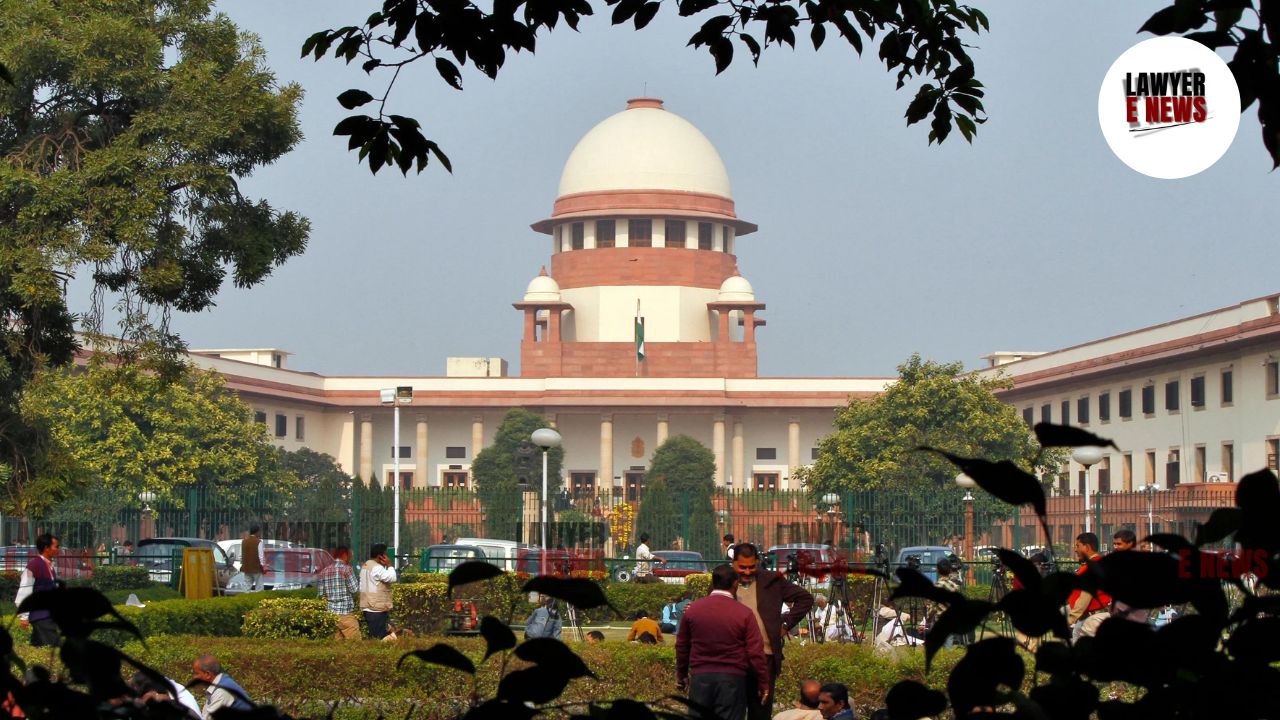-
by Admin
15 February 2026 5:01 PM



Revised UGC Regulations Not Binding Without State Adoption - Supreme Court dismissed an appeal challenging the retirement of a Director at a private unaided minority educational institution affiliated with a state university. The appeal, filed by P.J. Dharmaraj, contested his retirement at the age of 60, citing the revised regulations of the University Grants Commission (UGC) and the All India Council for Technical Education (AICTE), which increased the superannuation age for teachers to 65 years.
The Court upheld the decision of the Telangana High Court, affirming that in the absence of adoption of the revised UGC/AICTE regulations by the State of Telangana, the retirement age of 60 prescribed by state policy and followed by the affiliating Jawaharlal Nehru Technological (JNT) University remained applicable to the appellant.
The appellant argued that, as per the amended 2010 UGC/AICTE regulations, the age of superannuation for teachers had been increased to 65 years and that the benefit of these regulations should be extended to him. However, the Court rejected this claim, holding that the revised regulations would not automatically apply to an institution unless the state government adopted them.
"CSIIT, a self-financing private unaided minority institution affiliated with JNT University, follows the retirement age prescribed by the state and its affiliating university. The Government of Telangana has chosen not to adopt the amended UGC regulations enhancing the retirement age to 65 years. Without such adoption, the regulations cannot be imposed on private unaided institutions."
The Court also noted that the appellant, who was working as Director at CSI Institute of Technology (CSIIT), performed primarily administrative duties and did not qualify as a teacher under the UGC/AICTE framework. Therefore, even if the regulations applied, they would only benefit teachers engaged in classroom teaching, which the appellant was not.
"The appellant has not led any evidence to establish that he qualifies as a teacher after becoming Director. AICTE and UGC regulations are applicable only to those who are discharging classroom teaching duties."
The Court emphasized that the Telangana government, through its Government Order (G.O. Ms. No. 40, dated June 28, 2012), explicitly chose not to adopt the amended UGC regulations increasing the age of superannuation to 65 years. Consequently, the retirement age for teachers across state universities, their affiliated colleges, and self-financing institutions remained 60 years.
The Court reiterated that UGC regulations, though binding in nature, require adoption by the state for implementation in institutions under its jurisdiction. The judgment clarified:
"If the state government itself has not adopted the amended regulations, the same cannot be applicable to CSIIT. Even CSIIT has not determined the age of retirement for teachers to be 65 years."
The Court recognized the autonomy of private unaided minority institutions but stated that such autonomy does not exempt them from complying with state laws and the policies of the affiliating university.
The Court distinguished the precedents cited by the appellant, including Kalyani Mathivanan v. K.V. Jeyaraj and T.M.A. Pai Foundation v. State of Karnataka, stating that they were factually inapplicable to the present case.
The Supreme Court upheld the retirement of the appellant at the age of 60 and confirmed the appointment of Respondent No. 4 as Director of CSIIT. Dismissing the appeal, the Court observed:
"The appellant’s retirement at the age of 60 was in compliance with state policies and CSIIT’s governing rules. The revised UGC/AICTE regulations do not automatically apply in the absence of state adoption."
This decision underscores the conditional applicability of UGC/AICTE regulations and affirms the autonomy of state governments in determining retirement policies for educational institutions under their jurisdiction.
State Adoption is Crucial: UGC/AICTE regulations on superannuation or other service conditions are not automatically binding on state-affiliated institutions unless adopted by the respective state government.
Differentiation Between Teachers and Administrators: UGC/AICTE regulations on retirement age primarily apply to teaching staff, not those in administrative roles like Director or Principal unless they also discharge classroom teaching duties.
Limited Scope for Private Unaided Minority Institutions: Even though such institutions enjoy autonomy, they remain subject to the policies of the state and the rules of their affiliating university.
Date of Judgment: December 6, 2024
